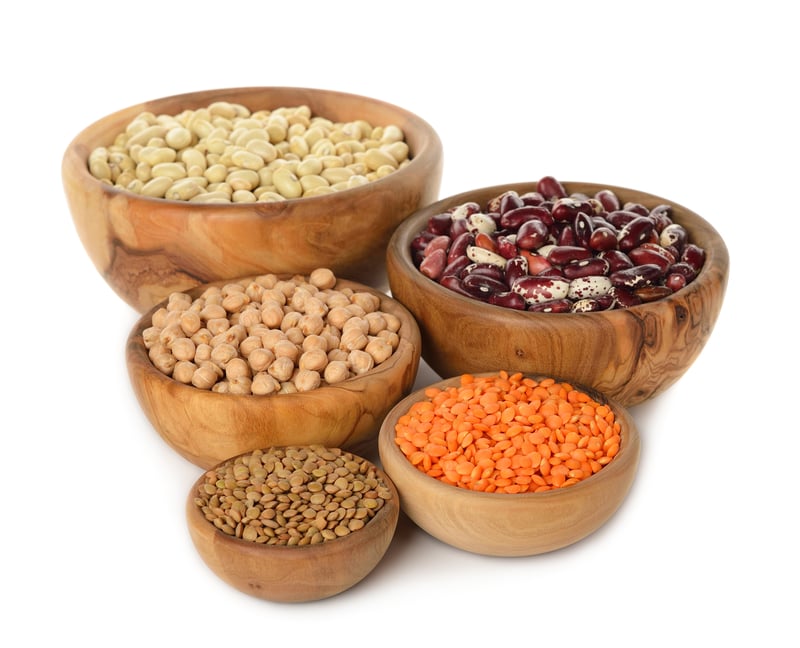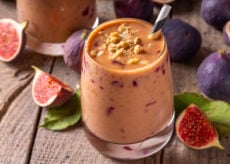The 5 Best Vegan Protein Sources To Add to Your Diet

Is it possible to get enough protein from vegan protein sources to keep your body running on all cylinders? The short answer is, of course.
Just because there is more protein in 100 grams of steak than there are in 100 grams of kidney beans doesn’t mean you can’t make it work. After all, protein is protein, regardless of the source. Am I right?
However, it can become a challenge to obtain all of the essential amino acids from single types of plant protein sources alone. Which is why I make the recommendation to incorporate a variety of sources that are high in protein, in addition to healthy fats to ensure you meet the required nutrients for optimal health and wellness.
You’ve likely heard that a quality plant-based diet is made up of whole, natural vegetables, fruits, nuts, seeds, grains, and legumes. But which ones are the best sources of protein?
Here are my top vegan protein sources, which stack up well against their carnivore counterparts.
Top 5 Vegan Protein Sources
1. Vegan Protein Powder
If you are going to use a vegan protein powder, it is crucial to ensure it contains multiple sources of plant-based proteins, as does BioTrust Harvest Protein Blend. Protein blends that contain multiple sources, such as pea, pumpkin, and hemp, provide you with all of the essential amino acids.
Hemp protein contains a complete, highly-digestible protein, as well as health-promoting essential fatty acids in a healthy ratio.
Pea protein contains a solid combination of essential amino acids for enhancing sports performance, and it may also help revitalize your muscles after exercise.
Pumpkin protein is rich in magnesium, which supports heart health, bone health, and regular bowel movements.
Individually, pea protein, hemp protein, and pumpkin protein are all phenomenal sources of plant-based protein, but when you can combine all three into a delicious shake blend, why wouldn’t you? It is one of the ultimate vegan protein sources.
2. Legumes
Beans, beans, they’re good for your heart… although this little ditty seems silly, tis true. A study published in the Journal of Nutrition suggests having just one half a cup of cooked beans daily might lower cholesterol. Additionally, beans contain a lot of soluble fiber which binds to cholesterol to help prevent it from being absorbed in the gut.
As if that weren’t enough, beans are a super inexpensive source of plant-based protein that pack a whopping 10 grams of protein in each ½ cup serving. There are so many varieties, and they are so versatile, so it’s no surprise these made my list.
If you want a super simple, tasty recipe, give this vegan chili recipe a try!
3. Tofu
The nutrition profile of tofu is pretty impressive. Not only does tofu have a 3:1 protein-to-carb ratio, but it’s also linked to a reduced risk of prostate cancer. Per serving, it’s low in calories yet high in protein, amino acids, iron, and calcium.
One of the reasons I like to incorporate tofu into a healthy vegan diet is that you can prepare this ingredient a variety of ways (baked, fried, marinated, grilled, sautéed, or stir-fried), and it takes on the flavor of whatever ingredients it’s made with.
4. Chickpeas
Also known as garbanzo beans, these tasty golden balls are technically a legume, but I think they’re deserving of their own category. Chickpeas are all-natural, nutrient-dense, and gluten-free, and let’s not neglect to mention that they are the main ingredient in hummus, which is all the rage these days.
Chickpeas are said to be a superfood due to their high levels of fiber, zinc, copper, beta-sitosterol, and iron. They also contain a boatload of fiber and protein, both of which help increase satiety. These will check all the boxes when it comes to keeping your cravings, energy, and hunger in check. Winning!
Fun fact: The liquid from canned garbanzo beans is often used as an egg replacer called aquafaba.
5. Lentils
There are many types of lentils ranging from brown to green to Lentilles du Puy to red to yellow to black, and they all have different textures and tastes.
Lentils also provide exceptional amounts of seven important minerals, B vitamins, and more importantly, protein—all of this with virtually no fat.
Top Vegan Protein Sources: A Recap
Have you noticed a trend in my list of top vegan protein sources? Each of these are shades of browns, reds, and greens synonymous with nature. They’re are also free of additives, preservatives, or synthetic ingredients.
And if you want to find out more about vegan protein sources or plant-based diets in general, we have more resources right on this blog. Here are three of my favs:




